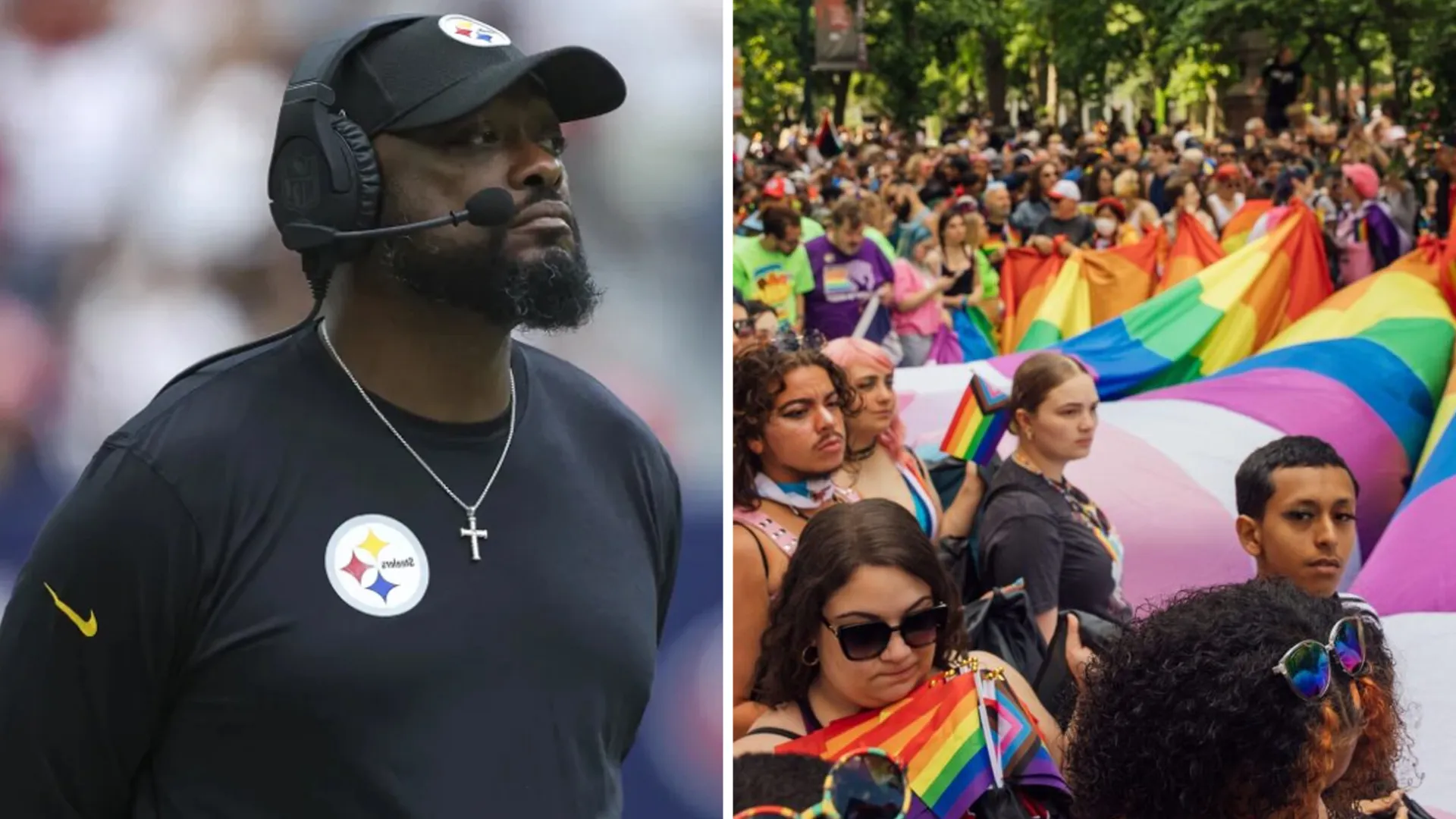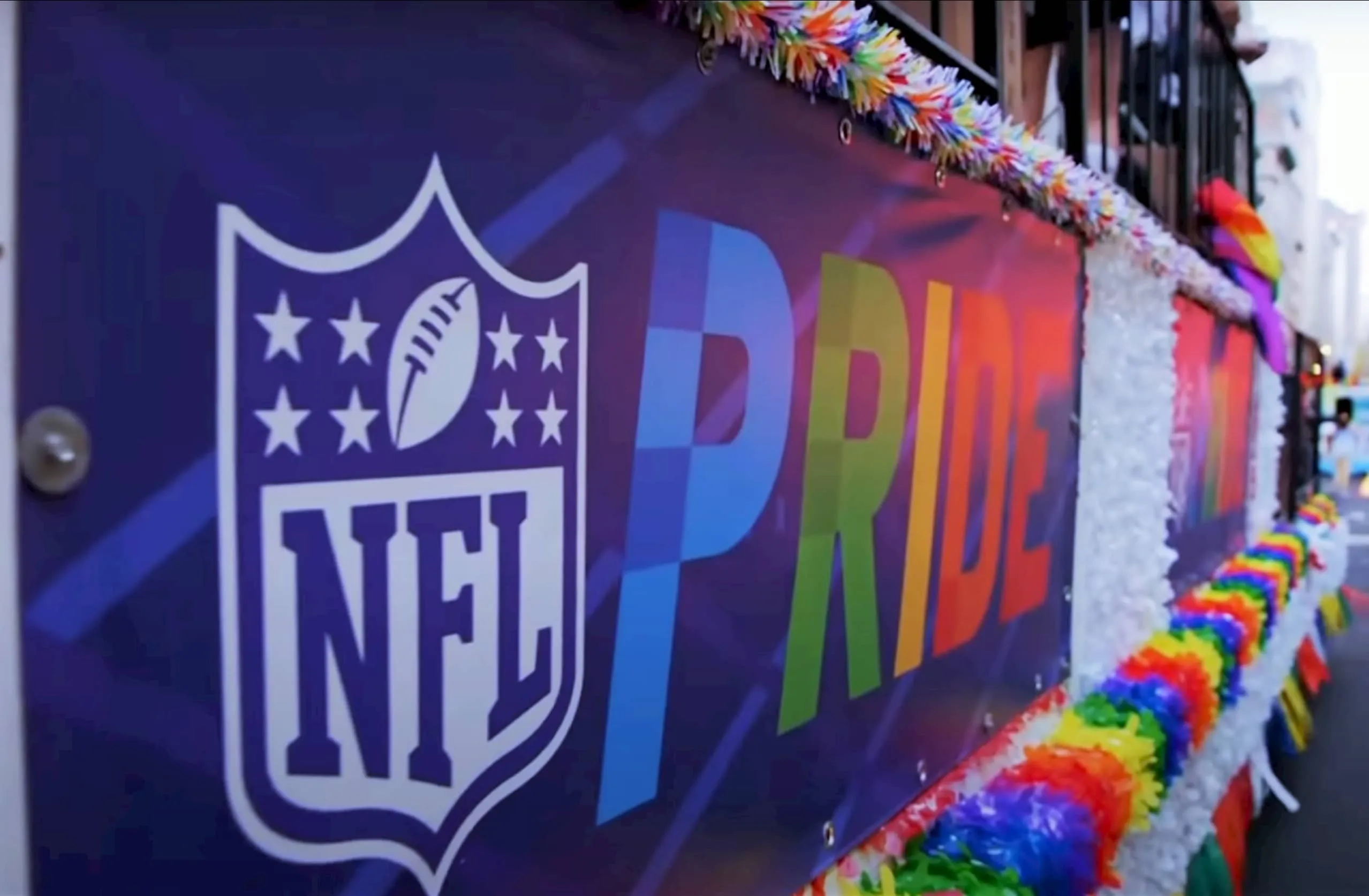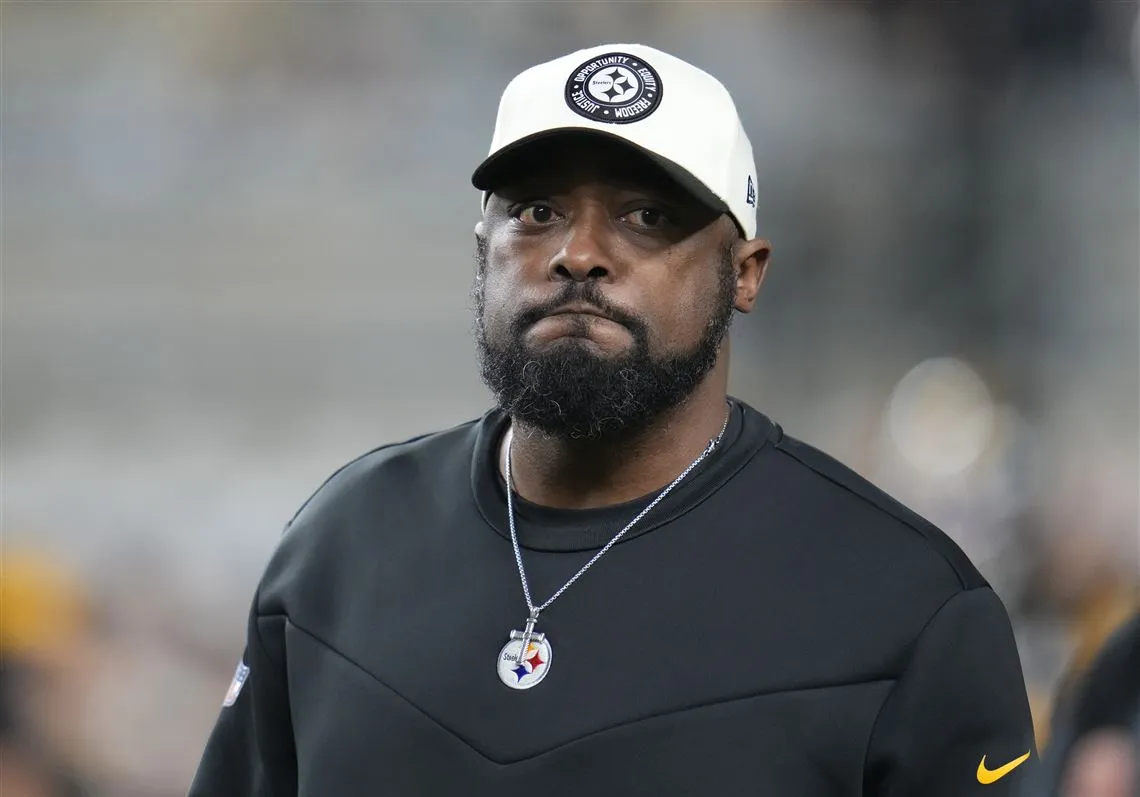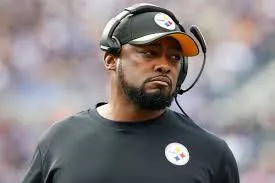The recent actions of Pittsburgh Steelers’ head coach, Mike Tomlin, have ignited controversy both within the NFL and across the sports community. Tomlin has reportedly directed his team not to participate in Pride Month celebrations, allegedly referring to it as “woke crap.” This decision has drawn both criticism and support, putting the coach and the team at the center of a larger cultural debate about inclusivity and freedom of expression in sports.

The Steelers organization has not officially commented on the situation, but insiders have reported mixed reactions within the team. Some players, particularly those who have publicly supported LGBTQ+ rights in the past, are said to be uncomfortable with Tomlin’s stance. Meanwhile, others reportedly agree with his perspective, citing a desire to keep politics and social issues separate from their performance on the field.
Veteran players such as Cameron Heyward and T.J. Watt have remained silent, neither endorsing nor criticizing Tomlin’s decision. This silence may reflect the sensitive nature of the issue, with players possibly concerned about the ramifications of speaking out, either in favor of or against their head coach.
Unsurprisingly, Tomlin’s reported comments have drawn significant backlash from LGBTQ+ advocacy groups and progressive voices within the NFL fanbase. Many see this as a step backward in the fight for inclusion and representation in sports. Organizations such as GLAAD (Gay & Lesbian Alliance Against Defamation) have expressed disappointment, stating that Tomlin’s remarks reinforce harmful stereotypes and undermine the progress that has been made toward creating an inclusive environment in professional sports.

On social media, hashtags like #SteelersPride and #TomlinOut have gained traction, with fans and advocates calling for the coach to either apologize or step down. Some have even suggested that the NFL should investigate the incident, citing the league’s ongoing commitment to diversity and inclusion.
However, there has also been considerable support for Tomlin’s stance, particularly from fans who feel that politics and social movements have no place in sports. These supporters argue that Tomlin is simply prioritizing the team’s focus on football and avoiding the distractions that often accompany participation in social justice campaigns. In their view, the NFL should be about the game itself, not about taking positions on cultural issues.
The NFL has made a significant effort to address social justice issues in recent years, especially in the wake of movements like Black Lives Matter and increased visibility for LGBTQ+ athletes and fans. The league has launched several initiatives aimed at promoting diversity, equality, and inclusion, including the “Inspire Change” program, which focuses on education, economic advancement, and criminal justice reform.
Participation in Pride Month has been a part of this broader effort, with many teams, including the Steelers, previously taking part in various events and campaigns to support the LGBTQ+ community. The question now is how the NFL will respond to Tomlin’s reported comments and whether it will have any long-term impact on the league’s approach to social justice issues moving forward.

Tomlin’s decision, and the reactions it has generated, reflect a larger divide in the world of professional sports. On one hand, there is a growing push for athletes and teams to use their platforms to advocate for social justice and equality. On the other hand, there is a significant portion of fans, players, and coaches who believe that sports should remain separate from politics and cultural debates.
This tension is not unique to the NFL. In recent years, athletes from various sports have found themselves at the center of similar controversies, from kneeling during the national anthem to refusing to wear jerseys with social justice messages. Tomlin’s comments have reignited this debate, raising questions about whether teams should be expected to participate in social movements and how much influence coaches should have over their players’ personal beliefs and actions.

As of now, it remains unclear how the Steelers organization will handle the situation. Will they continue to support Pride Month initiatives, despite Tomlin’s reported stance, or will they distance themselves from these efforts? And how will this decision affect the team’s dynamic as they prepare for the upcoming season?
For Mike Tomlin, the controversy could have lasting effects on his reputation, both within the Steelers organization and the NFL as a whole. While he is certainly not the first coach to express reservations about social justice movements in sports, his direct approach and use of inflammatory language have placed him in the spotlight. Whether he will choose to walk back his comments or stand firm remains to be seen.
What is clear, however, is that the debate over the intersection of sports and social justice is far from over. Tomlin’s comments have sparked a wider conversation about the role of athletes and coaches in advocating for social change, and this issue is likely to remain a hot topic for the foreseeable future.
The controversy surrounding Mike Tomlin and Pride Month participation is a complex and multifaceted issue that goes beyond sports. It touches on the broader cultural debates happening in society today about inclusivity, political correctness, and the role of sports in advocating for social change. Regardless of where one stands on the issue, it is clear that the conversation is far from over, and the decisions made by Tomlin, the Steelers, and the NFL in the coming weeks will have significant implications moving forward.